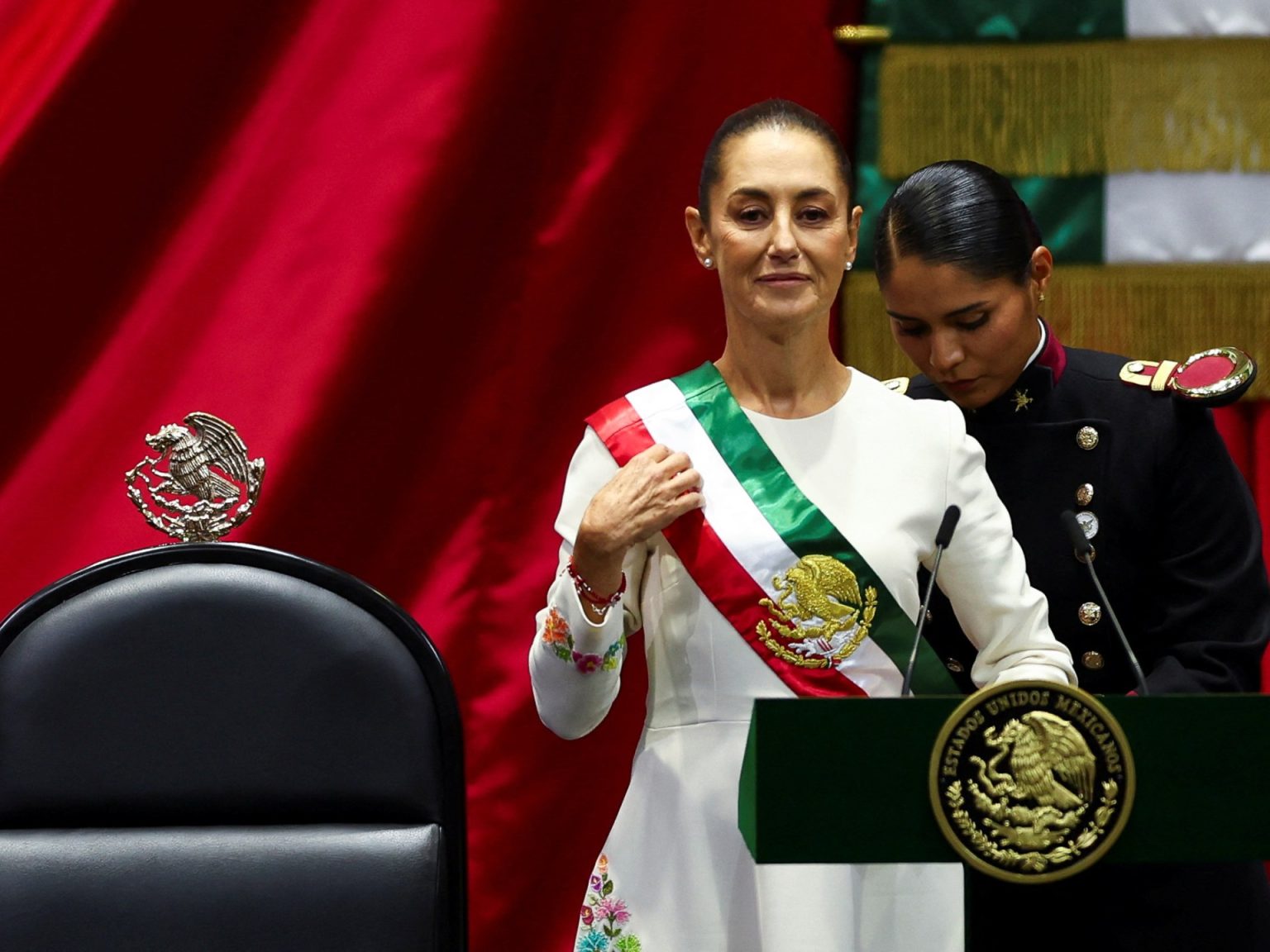Claudia Sheinbaum has been sworn in as Mexico’s first female president, taking over from outgoing president Andres Manuel Lopez Obrador. Sheinbaum, a 62-year-old climate scientist and former mayor of Mexico City, is set to serve a six-year term until 2030. She took the oath of office in a ceremony in the country’s Congress, where her supporters chanted “President! President!” and “Long live Mexico!” She emphasized that now is the time of transformation and women, signaling a new era in Mexican politics.
Sheinbaum enters office with her party holding supermajority control in the legislature’s lower house, and nearly the same in the Senate, ensuring she has significant political power. She sought to reassure investors that investments will be safe in Mexico, despite some last-minute moves by Lopez Obrador, such as a controversial judicial overhaul. This change will see federal judges, including those on the Supreme Court, elected by popular vote, causing concern among advocates of judicial independence and investors. She will also need to navigate a US election that could potentially shift relations with Mexico’s top trading partner.
Her inauguration marks the culmination of a four-decade rise in Mexican politics, including her history-making election as the first woman to lead Mexico City. The daughter of academic activists, Sheinbaum has embraced the historic nature of her presidency, using a logo featuring a young woman hoisting a Mexican flag as the emblem of Mexico’s government. She built a reputation as Mexico City mayor for a data-driven approach to leadership, reducing the city’s murder rate by half through increased security spending and expanded police forces. She aims to replicate this approach across Mexico to address high crime rates and the influence of drug cartels.
Sheinbaum plans to continue Lopez Obrador’s policies of generous social spending, pensions, and youth scholarships, while also addressing environmental initiatives. With a background in energy engineering and climate work, she intends to balance industrial dominance with renewable energy projects. She previously shared a Nobel Peace Prize for her work on climate change and served as Lopez Obrador’s environmental chief during his time as mayor of Mexico City. She has pledged to reduce the country’s fiscal deficit while maintaining popular welfare spending and tackling crime, with her first budget presentation in November likely to provide insight into her approach.
The new president faces challenges in a country where she must balance economic growth and social welfare initiatives amidst modest economic forecasts. She will need to navigate relationships with the US, addressing trade concerns and potential policy changes. Sheinbaum’s presidency signifies a shift in Mexican politics, with her emphasis on transformation and women leading the way. She brings a data-driven approach to leadership, with plans to address the country’s security issues and environmental concerns, building on her previous experience as Mexico City mayor. The next six years will be crucial in determining the success of Sheinbaum’s presidency and the impact she will have on Mexico’s future.


